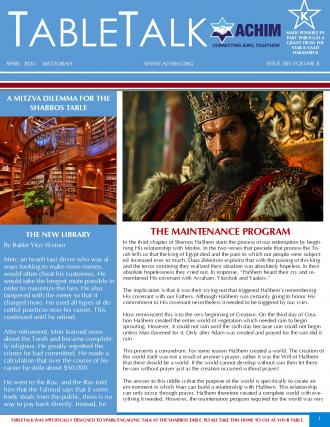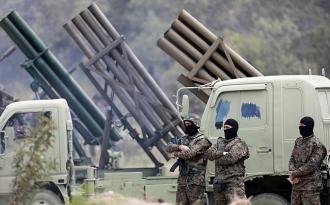It has been widely disseminated over the last day that Rav Elya Brudny, rosh yeshiva of Mirrer Yeshiva of Brooklyn, has advised that while normative water-related activities are fine to engage in, other water sports, especially those that involve a modicum of danger, should be avoided, in light of the preponderance of water-related tragedies in the frum community this summer.
Rav Brudny did not issue a halachic p’sakregarding this matter, but shared his personal feeling regarding the proper hanhagah of a Torah Jew.
Matzav.com has reported no less than 8 drowning incidents over the course of the summer.
In general, what are the parameters of engaging in sports and activities that involve some danger?
Let’s take a look.
The prevailing sentiment today is “It’s my life and my body and I can do with it whatever I choose.” Judaism teaches us, however, that “a person’s life is not his own property, it belongs to G‑d.”1 Each person was given the gift of life and put in this world for a specific purpose. Therefore, just as the prohibition of murder applies to others, it applies to oneself, and the same goes for injuring others or oneself.
In the words of the Code of Jewish Law:
A person should also be careful regarding anything that might cause danger, for we are stricter regarding danger than we are regarding Torah prohibitions . . . Therefore, it is forbidden to go to a dangerous place, such as alongside a dilapidated wall or to walk alone at night . . . and it is forbidden to rely on miracles or to endanger oneself in any such manner.2
So is it permissible to participate in water sports, or sports like football or wrestling, where there is a high risk of injury?
Dangerous Jobs
Regarding the obligation to pay wages in a timely manner, the Torah tells us, “You shall give him his wage on his day and not let the sun set over it, for he is poor, and he risks his life for it . . .”3 Focusing on the words “and he risks his life for it,” the Talmud explains that the verse is giving us a reason why you must pay on time, for this person risked his life doing his job; for example, “he suspended himself from a tree to gather olives or dates.”4
In a famous responsum, Rabbi Yechezkel Landau, known as the Noda B’Yehuda (1713 -1793), discusses the Jewish perspective on hunting:
I have thus far discussed the matter from the perspective of proper conduct. Now I wish to add that there might be an actual sin involved, too, since anyone who occupies himself with this [e.g., hunts] must enter forests, exposing himself to great danger from the many beasts lurking there. The Torah says, “And you shall guard yourselves very well” . . . So how can a Jewish person place himself where wild animals roam? Yet, even here, somebody who is poor and needs to hunt for his livelihood is permitted by the Torah to do so, just as merchants who travel the seas. Whatever a person needs to do for his livelihood must be permitted, as the Torah says, “. . . and he risked his life for it.” And our Sages say: Why did this man ascend a ladder, suspend himself from the tree, and risk death itself? Wasn’t it for his wages? But somebody whose intent is not for purposes of sustenance, but simply wants to satisfy the whims of his heart by going where wild animals lurk, and thus endangers himself, transgresses the verse: “And you shall guard yourselves very well.”
From the above it is clear that there are dangerous activities that may ordinarily be prohibited, but for financial considerations one may be permitted to do them. This brings us a step closer to our question about dangerous sports.
Contact Sports
Rabbi Moshe Feinstein writes that he was asked whether it is permissible to play professional ball despite the danger of getting hurt. Based on the Talmud we quoted earlier, he writes:
It is permitted to engage in a livelihood even if it involves a slight risk. Also, it should be permitted when there is a remote danger of killing others, for what is the difference between the prohibition against killing others and the prohibition against killing oneself? Killing oneself is also prohibited as murder, but it is permissible to take the risk for the sake of livelihood when the chances are minimal. Seeing as such is the case, it is also permitted when the minimal risk involved concerns injuring someone else. If this would not be so, how would it be permitted for the owner of a tree to hire a worker to climb it? Yet, this reasoning is only true if the other person takes the risk willingly. Otherwise, it would not be permitted to put others in even the slightest risk if they are unaware of it or if it is against their will.5
How Much Danger
It is thus clear that one can play professional sports to earn a livelihood even when there is a slight risk of bodily harm. But where do we draw the line?
In the responsum from Rabbi Moshe Feinstein, it is not clear which type of “ball” playing he is referring to. It can be argued that he was only talking about sports like baseball where there is only a minimal chance of injury. Indeed, there are some who explain that halachah permits activities where there is only a very slight risk of danger.6 This would seem to preclude participating in more dangerous activities like football or wrestling.
But there is another factor as well.
Rabbi Shlomo Zalman Auerbach writes that, in general, we look to the habits of the public to help determine whether something is deemed too dangerous. He determined that anything that the public “runs away from” out of fear of it being dangerous is, in fact, considered dangerous according to halachah, while anything that most people aren’t scared of is not.7
In other words, to determine whether it would be permissible, one would need to determine what the general public feels about it.
Since contact sports are generally not something people avoid, one could argue that neither should halachah view them as dangerous.
Selling Yourself to Cannibals (or Enlisting)
Rabbi Meir Eisenstaedter (known as the Maharam Ash, 1780–1852) notes that it is permitted for one to enlist in the army in times of peace. He further points to a fascinating incident in the Talmud that seems to have implications for our discussion.
Reish Lakish [who was known to be extremely poor] once sold himself to a group of cannibals (others translate the word as “gladiators”). He took a bag and a round stone inside of it with him. He said: “There is a tradition that on the final day of a captive’s life, before his captors kill him, they grant his any request, so that he would forgive them for his death.” On the final day before they were set to kill him, they said to him: “What would you like?” He said to them: “I want to tie you up and have you sit, and I will strike each one of you one and a half times.” He tied them up and had each one of them sit. When he struck each of them with one strike with the stone in the bag, they died, because Reish Lakish was of great strength. In order to prevent the others from realizing what was happening, Reish Lakish gritted his teeth in anger after each time he struck one of his captors: “Are you laughing at me? You still have half of a strike remaining with me, as I struck you only once.” He thus killed them all and escaped.8
Does this mean it is permitted to endanger oneself for monetary gain?
Reish Lakish was a very colorful personality, and before he devoted his life to Torah study, he was actually a bandit. Indeed, it is explained in Tosafot that this story must have taken place while Reish Lakish was still a bandit, before he returned to the proper path of Torah, “because afterward he would not have disgraced himself so much.”9
However, the Maharam Ash points out that Tosafot’s only issue with assuming that this story occurred later is the matter of proper decorum. There was no issue of it possibly being prohibited due to his putting himself in danger. This implies that his behavior was in fact permitted according to Jewish law.10
Accordingly, some explain that as long as an activity is not considered more dangerous than joining an army, it would be permitted.11 Thus, both professional wrestling and football would be permitted.
Shomer Pesa’im Hashem – God Watches Over the Unwise
One can’t help but notice how so many people routinely engage in dangerous activities without thinking twice. This conduct seems to contradict the Torah’s prohibition against engaging in anything which may be damaging to one’s health.[1] Indeed, we are required to avoid dangerous activities even more so than ritual prohibitions.[2] Whether it be smoking, air travel, skiing, riding roller coasters, and even speeding when driving, such activities seem to be tolerated, if not outright acceptable. How is it permissible for a Jew to do such things?
The justification for engaging in dangerous activities is based on a halachic concept known as “shomer pesa’im Hashem” which translates as, “God guards the unwise.” According to this principle, something which is considered to be a mainstream or routine activity is permitted to be performed even though it includes dangerous elements. This is true as long as the risks involved are proven to be negligible. It is explained that the prohibition against engaging in dangerous activities does not include those things which most people routinely engage in. As such, one may engage in all recreational sports, pastimes, and other pursuits even though they may not be completely safe, as long as they are considered normative activities. Although air travel poses a number of significant risks, one is permitted to fly since it has become a standard method of transportation despite the dangers involved.
The principle of shomer peta’im Hashem pertains exclusively to situations where the danger is minimal and disaster only occurs in a negligible number of cases. Nevertheless, it is permitted to engage in slightly higher-than-normal risks if doing so is required as part of one’s livelihood or work responsibilities. Even so, any act which poses a direct and immediate risk to one’s life is always forbidden. God does not provide any Divine protection whatsoever for those who intentionally engage in activities which are considered by most people to be extreme or exceptionally risky.
An unfortunately all too common habit which many people engage in is smoking. Although one may be led to believe otherwise, smoking is completely forbidden according to Torah law, as it is harmful to one’s health. While it is absolutely forbidden for one to take up smoking, it is unclear, however, if those who currently smoke are required to immediately quit. This is especially true regarding those who started smoking many years ago before it was revealed how dangerous the habit truly is. Some authorities argue that those who are genuinely unable to quit smoking qualify under the clause of shomer peta’im Hashem despite the health risks involved. In addition to smoking, the use of any substances which are harmful to the body are likewise forbidden. One is even forbidden to purchase cigarettes on behalf of another person, as doing so is assisting them in harming themselves.
Man’s Folly
Note that not everything is clear-cut. On the one hand, we are still learning about the degree of danger involved. On the other hand, new regulations and better equipment make certain sports safer than they may have been in the past.
“A man’s folly perverts his way, but his heart is wroth with the L‑rd,” says King Solomon in Proverbs.12 The Chassidic masters explain this to refer people who have what they need but are not satisfied. Wishing for riches, they seek out dangerous occupations and are “wroth with the L‑rd” when, heaven forbid, they get injured.13
Thus, before you sign your big contract with the NFL or try out another dangerous sport, it is best to consult with a competent Orthodox rabbi to ascertain whether this is indeed right for you.
This article has been culled from articles by by Yehuda Shurpin on Chabad.org and rabbi Ari Enkin on OU.org.
















